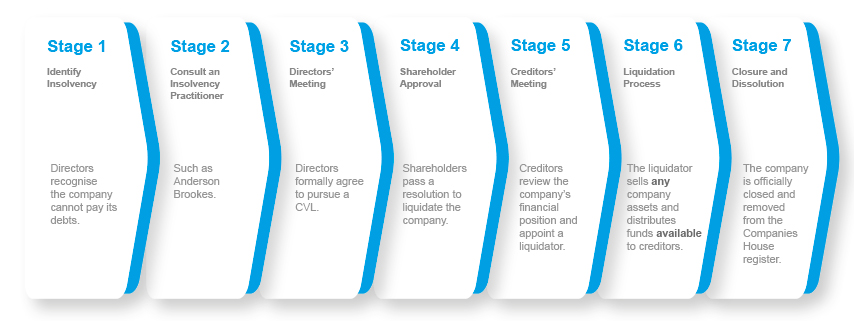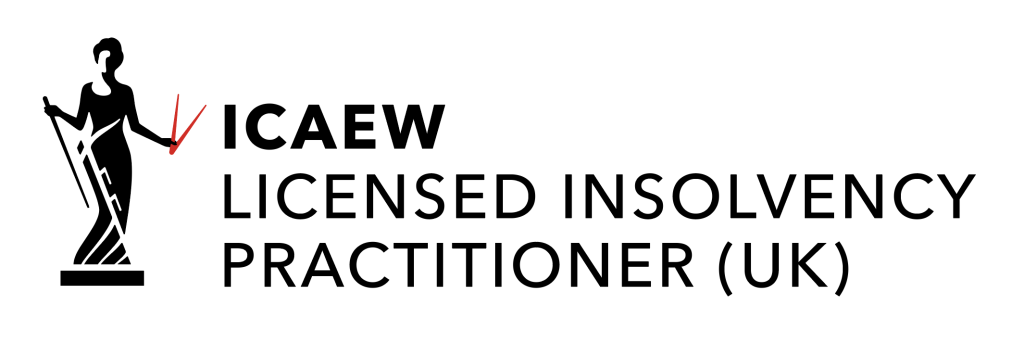Company Liquidation Advice
Anderson Brookes Insolvency Practitioners help directors close limited companies with debt quickly, legally and with expert guidance every step of the way.
Liquidation Advice - Today
Free Guidance from Insolvency Practitioners
If your limited company is struggling financially or can no longer trade, seeking professional advice is the first step to understanding your options. At Anderson Brookes, our licensed insolvency practitioners offer free and confidential company liquidation advice to help directors navigate the process, understand their responsibilities, and avoid unnecessary risks.
When Should a Company Consider Liquidation?
Company liquidation is typically considered when:
Debts have become unmanageable
The company is no longer viable or has ceased trading
HMRC or creditors have issued legal action
Directors wish to close a solvent company efficiently
Understanding whether liquidation is the right route depends on your company’s financial position, outstanding liabilities, and future trading prospects. Our team will assess your situation in plain English and advise on the most appropriate path forward.
Free, Straight-Talking Advice for Company Directors
Liquidation can feel overwhelming, especially if you’re facing creditor pressure or cash flow problems. We provide honest, practical guidance to help you understand:
Whether liquidation is appropriate for your business
The difference between Creditors’ Voluntary Liquidation (CVL) and Members’ Voluntary Liquidation (MVL)
Your duties as a director during the process
What happens to employees, assets, and outstanding debts
We’ll explain what to expect, including timescales, costs, and how the process works from start to finish.
Why Directors Choose Anderson Brookes
With more than 25 years’ experience and thousands of directors helped, we’re trusted by business owners across the UK. You can speak directly with an expert insolvency practitioner and we’ll help you understand your options clearly and quickly. We specialise in working with small and medium businesses and we understand your perspective and priorities.
Ready to
Move On?
If you’re ready to close your company, stop creditor pressure, or just want to understand your next steps, we’re here to talk.
Call us now on 0800 1804 935 or request a call back - we’re here to help.
Voluntary Liquidation - 7 Steps

Testimonials
Our clients praise our professionalism, reliability, and the exceptional support we provide during challenging times, helping thousands of company directors through insolvency, liquidation, and business debt solutions.

Start with a Free Review Today
If your company is in difficulty or you’re considering closure, we’re here to help. We’ll give you:
A free financial review
Clear next steps
Support with every aspect of liquidation if required
Contact Anderson Brookes for free company liquidation advice today
Phone: 0800 1804 935
Email: advice@andersonbrookes.co.uk
Expert guidance. No pressure.
Licensed Insolvency Practitioners You Can Trust
Only a licensed insolvency practitioner (IP) can formally liquidate a limited company. Our IPs are authorised by the ICAEW and work directly with directors across England and Wales to:
Place companies into voluntary liquidation
Ensure legal compliance
Communicate with creditors
Manage asset realisation and debt settlement
We never charge for initial advice, and there is no obligation to proceed. If liquidation is the right route, we offer a fast, fixed-fee service with no hidden charges.
Understand the Implications and Protect Your Position
One of the key benefits of early advice is protecting yourself as a director. We’ll explain how to avoid wrongful trading, how to handle personal guarantees, and whether you may be eligible to claim director redundancy worth thousands.
Getting liquidation wrong can lead to serious consequences, including personal liability and disqualification. We’ll make sure you understand your options and responsibilities clearly from the outset.


